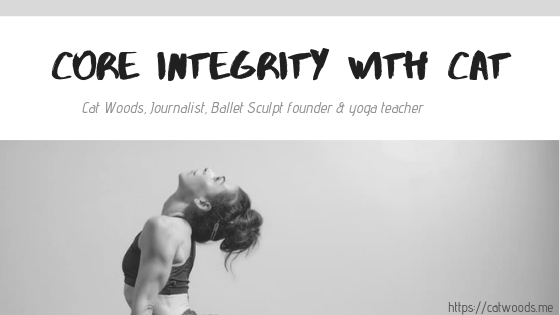There's an awful lot of health and fitness magazines and articles that list the calorie value of foods and the number of calories certain exercises can burn per hour. If the link is not blatantly stated as "Do This, Eat That" then it is definitely implied.
If you run for 20 minutes, that's an extra 2 smarties for you!
The danger is, you can end up creating a Food As Reward relationship to exercise whereby you are motivated to do it only as a means to eat what you want. This takes the enjoyment out of both food AND exercise.

The ugly face of dieting is that it has a psychological impact that primes us for inevitable failure. Whether or not you are meeting your caloric requirements, if you are restricting certain foods or quantities, you will feel deprived. While not for everyone, it is common for dieters to end up binge eating the very foods they have "banned".
I have walked out of Spin classes or stepped off the treadmill only to hear the person next to me announce "I just burned 280 calories!"
First of all, the machine is only estimating you burned that amount based on some mysterious average Joe burning that amount. It can't know your exact weight, how muscular you are (because muscle burns more calories), how fit you are or whether you run every day or once every 3 weeks. All these things make a difference. You could be burning anything from half the estimate to double it.
Trying to then base your diet decisions around this magical number is, obviously, destined to be a mess. You can't accurately predict, from machines or even your super-high-tech heart rate monitor/calorie counter, exactly how many calories your body is using. You can establish a rough guide and this is the best you've got.
Rather than obsessively reading food labels and whipping out your calculator, the nutritionists and dietitians I've worked with have recommended having a "rough" idea of the calorie value of food. Ultimately, the focus should be on the quality of what you're eating as measured by how nutritious it is, how satisfying, how enjoyable and how you feel during and after eating. If you're sadly nibbling on a rice cracker with a smidge of vegemite, chances are that 5kg you'll lose in 2 weeks from not eating a sandwich instead won't feel like such a victory with a raging appetite at 4pm and thoughts of fluffy, fresh baguette clouding your brain.
Research into diets has shown that it matters VERY little the composition of carbohydrates, protein and fat in various weight loss diets when it comes to success in the long term. The ONLY key to success is whether an eating plan can be adhered to over time. Things like Lemon Detox, No-Carbs after 3pm, Juice-Cleanses and High-Protein diets naturally rob the body of the full range of vitamins and nutrients it requires. They will also leave you feeling deprived and distracted by thoughts of all the foods you're not "allowed".
The fabulous "The Conversation" invited academics from Melbourne universities to discuss weight loss based on research and facts. I highly recommend you look at "The science behind weight loss". Rather than telling you to eat less and exercise more, it actually delves into theories on why obesity is such a growing problem, why dieting is so often doomed to failure and what methods and mindsets are most valuable to succeeding in maintaining a healthy weight.
I love dance, I love pilates, yoga and step. These are highly social, creative and challenging ways to be active AND have fun. While you might prefer boxing or running, make sure it's something you're not dreading beforehand and struggling to find the motivation for.
I genuinely enjoy teaching Ballet Sculpt too - it's a fun way to get a workout while embracing your inner dancer and spending time with plenty of friendly, welcoming men and women!
Here's what you need to know in a nutshell:
- Choose exercises you enjoy and feel challenged by
- Eat foods that you enjoy and that you know are good for your body and soul - if that means chocolate now and again, or hot chips at the football, don't feel guilty for it
- Don't take the calorie count given on heart rate monitors and machines as the gospel truth
- Don't try to make up for overeating or binge eating with compensatory exercise
- If you are vulnerable to dieting/body image messages, avoid women's magazines and "fitness" magazines - if you need advice, seek a personal trainer who understands your vulnerabilities and has enough experience to give you good, inspirational advice
- Accept that your friends and workmates might love jumping on the diet bandwagon - it doesn't mean you have to join them!
Les Mills Dance-A-Palooza @ Melbourne Exhibition Centre April 4 - 6
The Butterfly Foundation (free support service if you're concerned about your eating/exercise habits or those of a friend/family member)






No comments:
Post a Comment
Go on, comment!